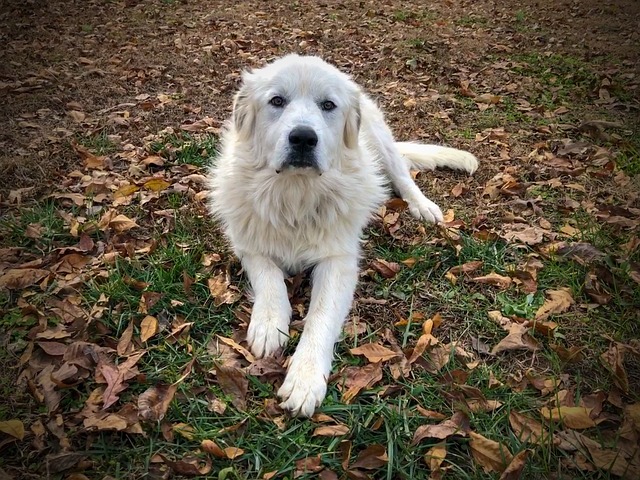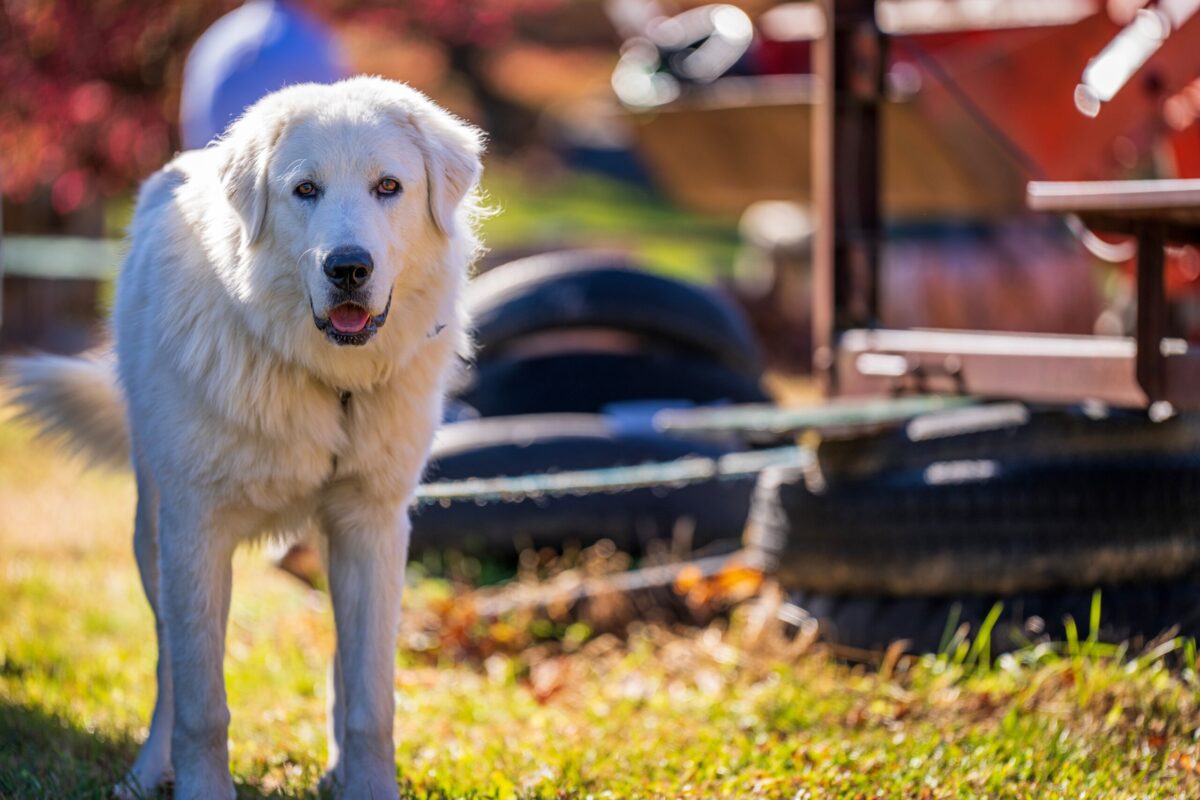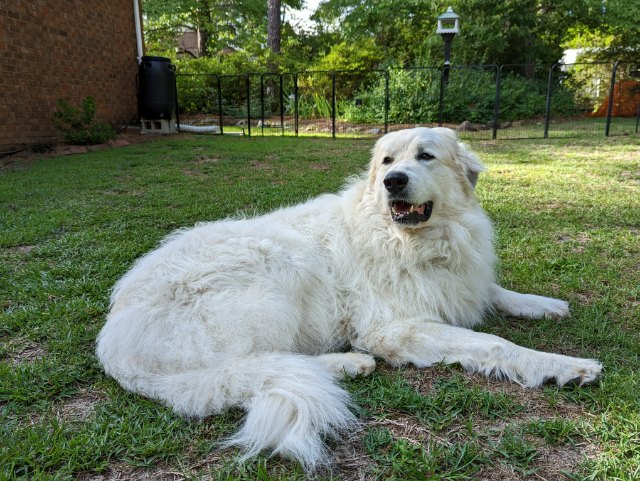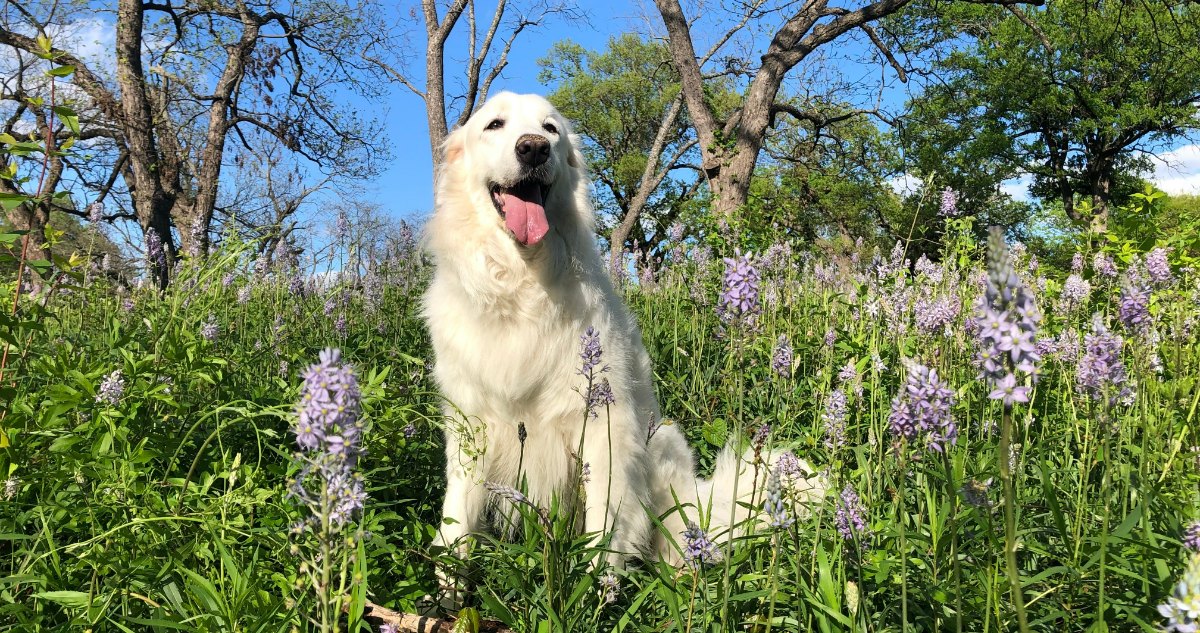Great Pyrenees
Showing all 4 results
Shelter Dog Meal Donation Count:
Showing all 4 results
The Great Pyrenees is a majestic and noble breed known for its calm demeanor and protective instincts. They make excellent family pets for those who appreciate their independent nature and are prepared to manage their grooming needs and exercise requirements. While their trainability may present a challenge due to their independent streak, their loyalty and protective instincts make them superb guard dogs. Ideal for families with space to roam, the Great Pyrenees is a devoted companion that thrives in a loving, active environment. Their ability to guard and their gentle nature with children make them an excellent choice for those looking for a large, protective, but family-friendly dog.
The Great Pyrenees are renowned for their calm and patient nature, making them excellent family pets. They are also known for their protective instincts, originally bred to guard livestock.

Originating in the Pyrenees Mountains of France and Spain, this breed has a long history as a guardian of flocks and a defender against predators. Their history as working dogs is reflected in their strong protective instincts.




Prone to hip dysplasia, bloat (gastric torsion), and bone cancer. Regular veterinary check-ups and monitoring for signs of these conditions are important.
Requires regular brushing due to their thick coat, especially during shedding seasons. Regular bathing, nail trimming, and ear cleaning are also necessary.
Needs daily walks and playtime but is not excessively energetic. Suitable for families with space for them to roam and play.
Intelligent but can be independent, making training a challenge. Consistency and patience in training are key. Early socialization is crucial to ensure they are well-adjusted.
A balanced diet is appropriate for their size and energy level. Care should be taken to monitor their food intake to prevent obesity.
Caring for a Great Pyrenees involves understanding their specific needs as a large, protective breed. They thrive in environments where they can exercise and be part of family activities. With proper care, including regular veterinary visits, appropriate nutrition, and sufficient exercise, Great Pyrenees can be loyal and loving companions.
The Great Pyrenees, known for their majestic appearance and gentle nature, are generally healthy but have predispositions to certain health issues. Being aware of these potential problems and the recommended tests can help in maintaining their health.
Understanding these common health issues and adhering to the recommended tests and preventive care guidelines can help ensure a long, healthy life for Great Pyrenees. Collaboration with your veterinarian is key to developing a health care plan tailored to your dog's specific needs.
The iHeartDogs Free Rx Discount Card Program is a pet prescription discount card that can help you save money on your furry friend’s medications. The card is free to sign up for, and you can use it at participating pharmacies nationwide. To use the free program, simply show the card to your pharmacist when you pick up your pet’s prescription. The pharmacist will then scan the card, and you will receive a discount on the price of the medication.LEARN MORE
Caring for a Great Pyrenees, a large to giant breed, involves various expenses that can vary depending on factors like location, the dog’s age and health, and personal care choices. Here’s a breakdown of typical expenses:
Total Estimated Annual Cost:
$3450 - $9000
It's important to note that these figures are estimates and can vary. Also, the first year of owning a dog can be more expensive due to one-time costs like spaying/neutering, initial vaccinations, and training. Regular budgeting for your dog's needs and an emergency fund for unforeseen costs are essential for responsible pet ownership.